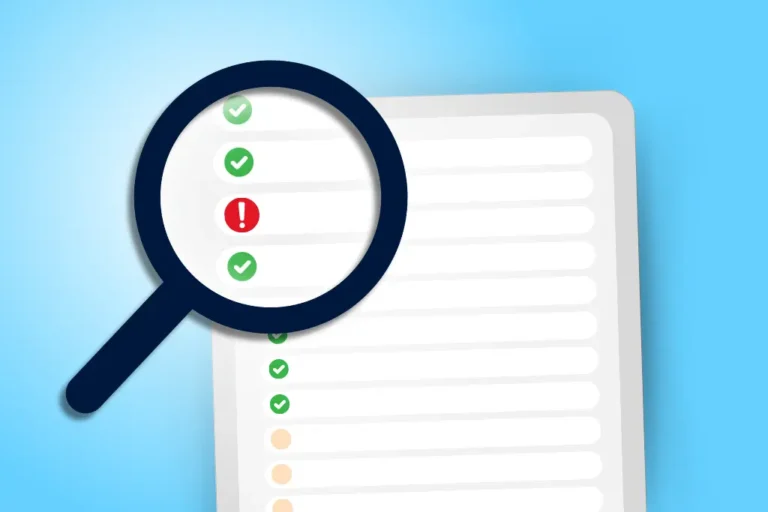By now, most have gotten used to working through a pandemic, and most companies have settled into a routine. Despite the worldwide vaccine rollouts, the world still has a ways to go before reaching total normalcy.

Board self-evaluations are routine, with most boards performing them regularly and taking them very seriously. As the economic sands shift to a post-pandemic world, company boards need to be
prepared for these disruptive and long-term changes and thoroughly consider them during their annual evaluations.
Board self-evaluations can be opportunities to adapt the company by taking lessons learned throughout the pandemic – such as how effective employees have been at working from home and an emphasis on diversity – and applying them to the company’s corporate governance structure for the long term.
What Constitutes A Proper Board Self-Evaluation In Europe?
A board self-evaluation is just that – board members assessing the board’s effectiveness as a body and themselves as board members. While board evaluations in the United States tend to be more open-ended and flexible, the European Commission has emphasized the importance of using corpo- rate governance matters and guidelines as a basis for board evaluations.
The answers to a board’s self-evaluation questionnaire are used to see where the board and individual members may require more resources and training. As such, each board member must fill out the assessment honestly – even if the answers are negative. It also helps to form the company’s corporate governance strategy for the following year, which is why questions should pertain to recent events that will affect the company in the short-term future.
For effective and meaningful board self-evaulations, the following elements must be considered:
- The quality of monitoring and the role of risk management.
- The quality of the strategic orientations and other management-related decisions.
- The dynamics of the board of directors and the proactive participation of all members.
- The composition and diversity within the board of directors.
As the economic terrain adjusts to a post-pandemic world, boards of directors companies need to prepare for it based on lessons learned from the crisis. The time will be economically critical as many government subsidy programs will disappear and loans taken out during the pandemic will have to be repaid.
It will also be time to adapt the way a business operates by learning from the pandemic, inclu- ding evaluating the effectiveness of employees working remotely and emphasizing diversity, and applying these lessons to the corporate governance structure.
How Should European Board Self-Evaluations Change Post-Covid 19?
In addition to the questions that one would usually find on such an assessment, there should be an addendum with questions about how the board members think the company should operate in a post-COVID world. The questions should include some of the following considerations:
The importance of technology that supports remote-working, facilitates greater collaboration, and streamlines communication about company-wide action plans, cannot be understated in how it can impact governance.
Adopting the right technology and processes now can make the organization more agile and reactive in the face of future disruptions, including the economic aftershocks of COVID-19. The board should proactively work with management to address if their risk management plan is resilient enough to face another unexpected crisis and a different risk landscape.
1. EVALUATION OF THE PLACE OF THE COMPANY IN SOCIETY
Before COVID-19 hit, Environment, Social & Governance investing (ES&G) was on the rise as a market force. Companies that ticked boxes in all three of the categories – environmentally minded, commu- nity-minded, and having good corporate governance – consistently showed higher returns for inves- tors.
Once COVID-19 took over our collective consciousness, environmental considerations took a backseat to Corporate Social Responsibility (CSR) as the company’s position as an employer became more critical in an economic downturn. Various measures were taken to ensure companies did not have to lay off personnel, usually in the form of government grants and loans designed to help businesses cover increased costs associated with loss of business and/or retooling operations to happen in a remote or socially distanced manner.
Sample questions around this category could include:
- Does the board have a strategy to deal with climate change in place, and if so should it be reevaluated in light of changing business circumstances?
- Is the board considering the environment enough in its decision-making and strategy design?
- Is the board taking enough measures to acknowledge the increasing role of diversity, both in the workplace and on the board itself?
2. Resilience And Ability To Economize
While the pandemic has been a time for tough decisions, a post-COVID business world may require even tougher ones. There are lessons the company is learning from doing business during a pandemic, including where cuts can and should be made.
Sample questions around this category may include:
• Am I ready to suggest or approve uncomfortably deep cuts as a board member which serve stakeholder interests?
• Doestheboardhavefinancialreportinginplacethatwillallowthecompanytopivotquicklyif problems arise?
• Are we prepared to make big decisions in the direction of the company, such as continuing to operate with a remote workforce or not? Do we have data which can back up these decisions either way?
• Do I have the bandwidth as a board director to take on increasing responsibility if the company requires more time from me?
• Is the board a safe environment to discuss issues which may be controversial, such as laying off management or changing the company’s direction?
3. Compensation And Stakeholder Communication
While many of these will be follow-on questions from the last category, the issues of compensation and communication with stakeholders will be of heightened concern in a post-COVID world. If a company has seen significant losses due to the pandemic, investors, employees, and management may see levels of compensation frozen or reduced. Ultimately, the board will have to answer for a loss of stakeholder compensation and communication with stakeholders will have to be completely transparent if this is the case.
Sample questions for this category may include:
• Do we have sufficient legal protections in place if we need to change compensation at the management, employee, or investor level?
• Do we have the right datasets in place in order to make an informed financial decision about compensation at all levels of the company?
• Do we understand who our stakeholders are and have an effective stakeholder communication strategy and pipeline in place?
This is just the start of some of the questions your board self-evaluation may need to incorporate in order to plan for the post-pandemic corporate landscape. The challenges which businesses face during and after the pandemic are similar to those faced by businesses during World War II or The Great Depression, and they will require serious work to get through.
This work will be difficult and can be made easier by having the right technological tools in place – tools which our ancestors did not have the benefit of when faced with similarly large challenges. Used properly, they can give boards and the companies which they are stewards of a significant edge.


